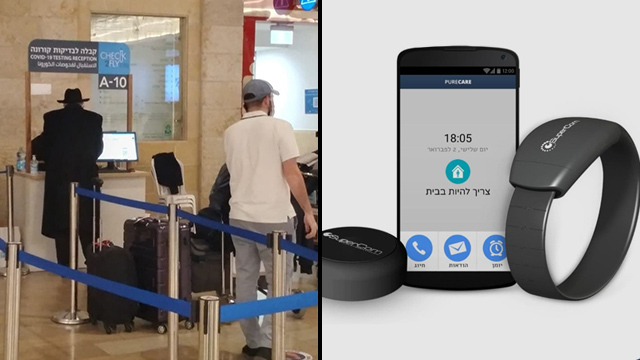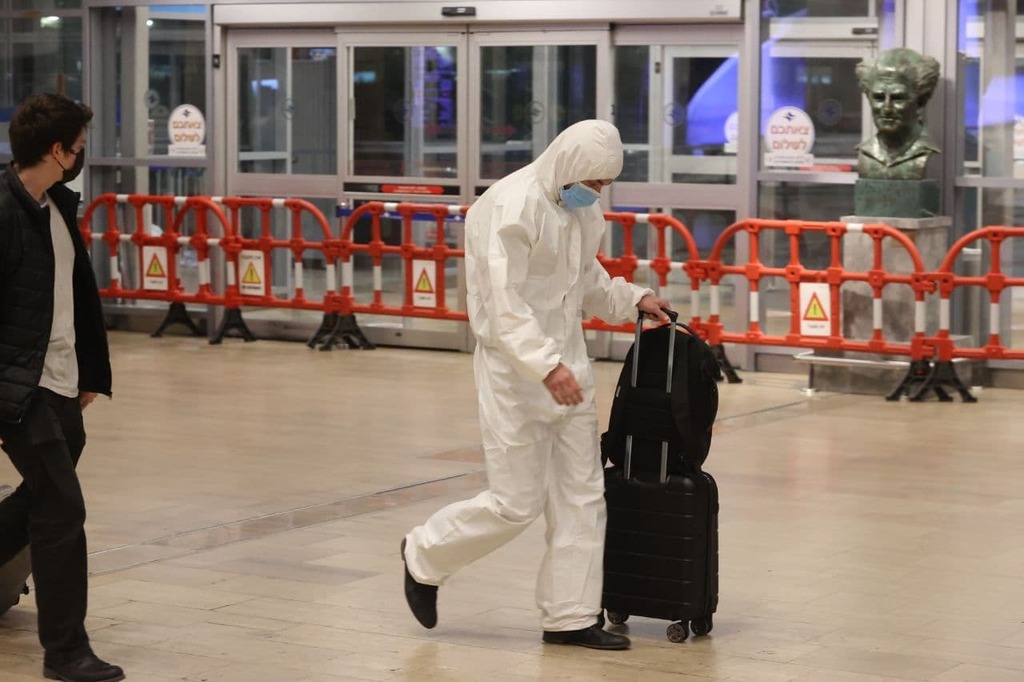Getting your Trinity Audio player ready...
Israel on Wednesday reinstated compulsory isolation in state-run hotels for people who arrive in Israel from abroad while the Health Ministry launched a pilot program in which travelers will quarantine at home and be affixed an electronic tag as part of the measures to curb the spread of COVID-19.
Knesset's Constitution, Law and Justice Committee approved extending the order until March 2 after panel chairman MK Yaakov Asher (United Torah Judaism) initially objected to it, imploring the government to present him with alternatives.
The order expired the night between Monday and Tuesday, and since then many Israelis who landed at Ben Gurion Airport have returned directly home. In contrast, about 80 passengers who will arrive in Israel on a Lufthansa flight Wednesday night will be forcibly taken to hotels.
Alternatively, travelers will also have the option to participate in the new pilot program and self-isolate at home.
As part of the pilot, the state will initially issue 100 tracking kits to travelers to ensure they do not leave their place of quarantine during the isolation period. The program is planned to be expanded to 1,000 kits within days.
Travelers who wish to isolate themselves at home instead of a hotel will have to put down a NIS-1,500 deposit.
Israel Police representatives refused to take responsibility for supplying the system, but officers will be deployed to enforce breaches of quarantine.
Tracking and identification company SuperCom will operate the program, supplying ankle bracelets, electronic tags and smartphones to some 1,000 Israelis returning from abroad.
Deputy Health Minister Yoav Kisch said the new measures are a part of Israel's efforts to prevent the spread of new COVID-19 variants throughout the country and will be brought to a Knesset vote next week.
"We are very concerned about new variants coming in that may jeopardize the vaccination campaign," Kisch said. "To this end, we require isolation in hotels for arrivals from abroad. Those who test negative [for coronavirus] at the airport can choose to isolate at home with electronic tagging. Those who don't want to, can stay in a hotel. We are not forcing anyone. We have legal permission to start the pilot and it will go up for vote next week."
Meanwhile, the Health Ministry is examining additional technological solutions, such as reintroducing the controversial cellphone tracking scheme operated by the Shin Bet domestic security service last year.



